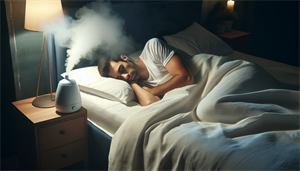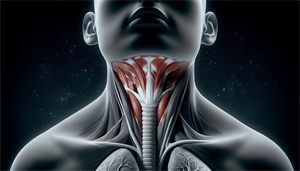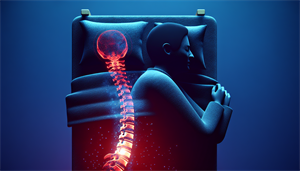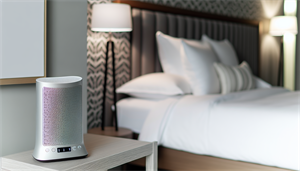Articles
Does Insurance Cover Sleep Apnea Machines?
 August 21st, 2024
August 21st, 2024
Insurance, including Medicare and Medicaid, often covers CPAP therapy for sleep apnea, with eligibility requirements and potential out-of-pocket costs.
What is a Dangerously Low Oxygen Level While Sleeping?
 August 21st, 2024
August 21st, 2024
Normal sleep oxygen levels are 95-100%; levels below 92% are concerning, and under 88% is an emergency. Monitoring and treatment options are available.
Dehydration and Sleep Apnea
 August 21st, 2024
August 21st, 2024
Dehydration worsens sleep apnea symptoms, affecting sleep quality. Balancing hydration, lifestyle changes, and treatments like CPAP can improve rest.
Sore Throat from Sleep Apnea
 August 21st, 2024
August 21st, 2024
Obstructive sleep apnea, causing throat muscle relaxation and airway blockage, often leads to a sore throat, treatable with CPAP therapy and lifestyle changes.
Sleep Apnea and Heart Palpitations
 August 21st, 2024
August 21st, 2024
Sleep apnea can cause heart palpitations and heart health issues. Managing it involves CPAP therapy, lifestyle changes, and possibly medication.
Can Sleep Apnea Cause Back Pain?
 August 21st, 2024
August 21st, 2024
Sleep apnea, causing systemic inflammation and poor sleep, can exacerbate back pain. Treating it may reduce these symptoms.
How to Block Out Snoring Without Earplugs
 August 21st, 2024
August 21st, 2024
Block out snoring without earplugs using white noise machines, comfortable sleep headphones, soundproofing, and lifestyle changes to reduce snoring.
Can Sleep Apnea Cause Miscarriage in Pregnant Women?
 August 21st, 2024
August 21st, 2024
Sleep apnea in pregnancy may increase risks like gestational diabetes and miscarriage. Managing it with CPAP therapy and lifestyle changes is crucial.
Do You Dream With Sleep Apnea?
 August 21st, 2024
August 21st, 2024
Sleep apnea can disrupt dreams and cause nightmares; CPAP therapy and addressing psychological factors improve dream quality.
Why Does My Newborn Snore?
 August 21st, 2024
August 21st, 2024
Newborn snoring, often due to small nasal passages, is usually normal. Consistent, loud snoring may indicate sleep apnea and should be medically evaluated.